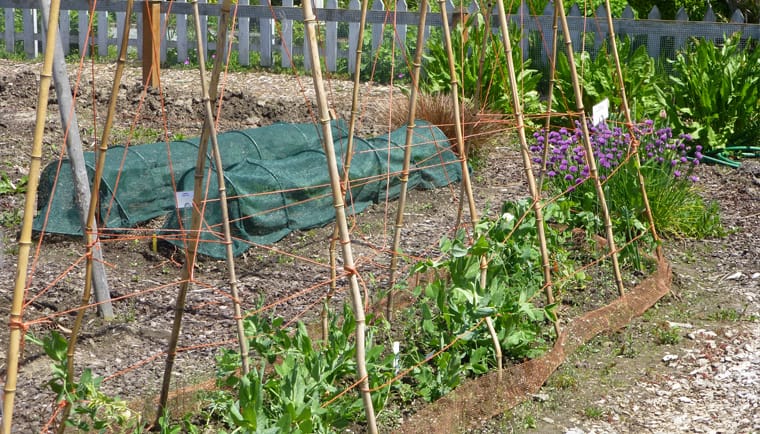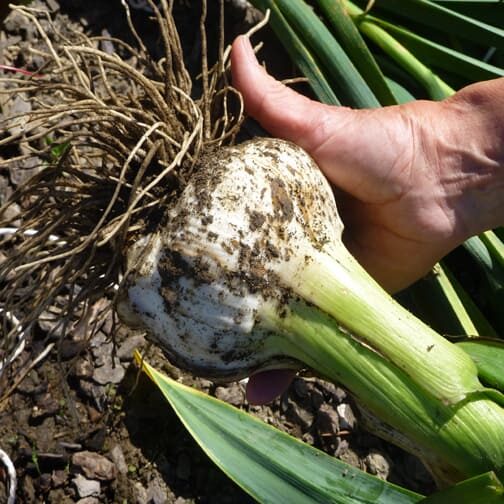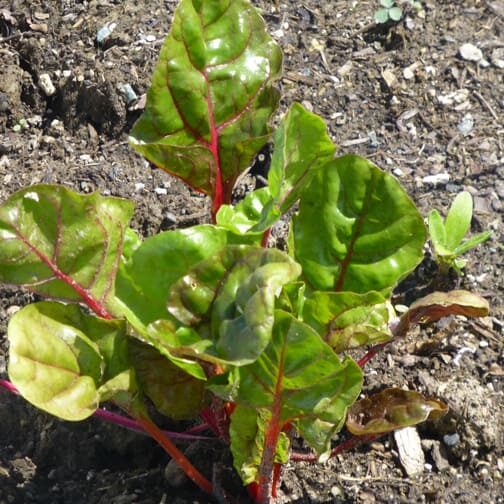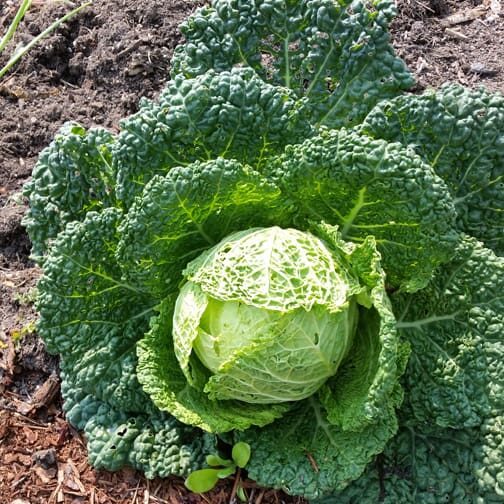Cool Weather Vegetables


Cool Weather Vegetables
Getting the Garden Started Early in the Pacific Northwest
By Ruth Sutton, Skagit County WSU Extension Master Gardener
Winter time in the Pacific Northwest, when the days are short, cool and cloudy, is the perfect time to check out seed catalogs and start thinking about what and when to plant. Our marine-influenced weather makes the perfect climate for growing cool-season vegetables that thrive in 40 - 70 degree temperatures. There is a long list of popular and common cool-season vegetables, including: spinach, kale, lettuce, onion, garlic, asparagus, cabbage, broccoli, beets, carrots, Swiss chard, peas, radishes, parsnips, and potatoes.
Planting and Temperatures:
Cool season vegetables must be planted early enough for them to complete their full growing cycle up to harvest before the temperatures rise. Once the air warms up, some of them will be triggered to bolt by sending up flowers and making seeds as they struggle to reproduce and survive.
Some seeds such as beets, carrots, cabbage, arugula and turnips will germinate with temperatures as low as 40 degrees Fahrenheit, while others need higher temperatures. Check out growing charts for our area as well as last frost dates, and make sure to check the seed packet or seed catalog for indication of the minimum temperature for air and soil prior to planting. Soil thermometers are inexpensive and easy to find and can assist in determining the soil temperature.
Seeds vs. Starts:
Look for seeds that are grown in a similar growing zone, and that are disease and bolt resistant. Some vegetables, such as carrots, cilantro, parsnips, radish, and spinach are best sown directly into the garden soil. Most cool weather seedlings can withstand a light frost, and row covers can be used to protect the seedlings if necessary. On the other hand, cool springs can make it difficult to get good germination, and even some cool-season plants can benefit from being transplanted.Local stores and nurseries will soon be stocking cool weather starts.
The Onion Family:
One of the earliest to start in our area is the onion family. Leeks, shallots, and onions are very cold tolerant. If you have access to a greenhouse, now is the time to start onions from seeds. Once the starts are 4-5 inches in height, they are ready to go into the garden. Onion starts are hardy and can be transplanted as soon as March. Starts are usually available in nurseries this time of year as well. Make sure you grow the long-day or day-neutral varieties in our area. The local stores stock these varieties. Look for eastern Washington Walla Walla sweets in stores in March.
Peas:
Peas also thrive in the early spring weather. Although you can directly sow peas in late February and on, they can also be soaked overnight and then grown in seed pots until 4-6 inches in height. This has the advantage of preventing the peas from rotting in the ground in case of a very wet spring. Stagger your plantings a few weeks apart and you will have a succession of peas to eat. Popular varieties include Oregon Snow pea and Sugar Snap peas.



Leafy Greens:
Lettuce is another easy, popular vegetable to grow here. There are so many varieties of lettuce it can be dizzying trying to decide which to try. Whether you opt for the brilliant red of Gabriella, or the bright chartreuse of Simpson’s elite, all do well in the northwest climate and can be directseeded by March or a week or two before the last frost.
Spinach is hardy as well in cool weather. Be sure to choose a variety that is bolt-resistant, as it loves to bolt when temperatures rise.
Swiss chard and kale are wonderful vegetables to grow in the PNW as they have few diseases or pests. They also have a long growing season. They can be seeded again in July or August for long winter harvest. In fact, the flavor of kale is improved after a frost due to carbohydrates in its cell walls that turn into sugar molecules.
And there’s more:
Cabbage is cold-resistant and a favorite for planting in late July or August for a fall and winter harvest. Garlic, another cool season vegetable, is planted by placing cloves in the soil in late fall for early summer harvest.
Asparagus is a popular perennial, usually grown from starts. The fresh stalks popping up in early spring are eagerly anticipated. They need a permanent spot in the garden and take a few years before they can be harvested but are worth the wait.
Finally, don’t forget the northwest potato. The Skagit Valley farmers have grown potatoes here in the valley for many years. Planted usually around April, their tubers will grow underground until they are ready for harvest. They hold well underground as well.
With so many options for early gardening, what are you waiting for?
About the Author:
Ruth Sutton is a Skagit County WSU Extension Master Gardener and Co-coordinator of the Vegetable Garden at the Discovery Garden on SR 536 in Mount Vernon.
References:
Leeks by Brian Charles Clark, Spring 2017, Washington State Magazine https://magazine.wsu.edu/2017/01/27/leeks/
https://extension.wsu.edu/snohomish/fall-and-winter-vegetable-gardens-for-western-washington/
Home Gardening Series by Carol Miles, Gale Sterrett, Lynnette Hesnault, Chris Benedict and Catherine Daniels. https://pubs.extension.wsu.edu/home-vegetable-gardening-in-washington-home-garden-series
Questions about home gardening or becoming a master gardener, may be directed to: WSU Skagit County Extension Office, 11768 Westar Lane, Suite A, Burlington, WA 98233; by phone: 360-428-4270; or via the website: www.skagit.wsu.edu/mg
Washington State University Extension helps people develop leadership skills and use research-based knowledge to improve economic status and quality of life. Cooperating agencies: Washington State University, U.S. Department of Agriculture, and Skagit County. Extension programs and policies are available to all without discrimination. To request disability accommodations contact us at least ten days in advance.